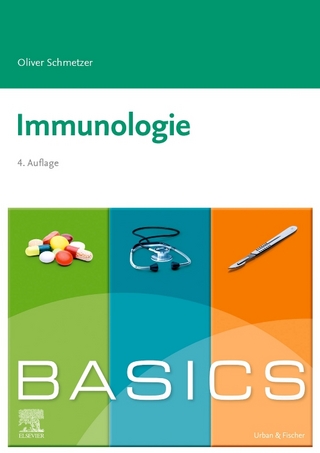
SARS-CoV-2 Variants and Global Population Vulnerability
Apple Academic Press Inc. (Verlag)
978-1-77491-758-9 (ISBN)
SARS-CoV-2, the coronavirus responsible for COVID-19, wreaked havoc on the world; it could both spread easily and mutate rapidly, leading to the decrease in the effectiveness of newly developed vaccines over time. The detection of these mutated variants and the development of more efficient vaccines requires significant effort and increased knowledge in this field. This new book, SARS-CoV-2 Variants and Global Population Vulnerability: Diagnostic Strategies, Vaccine Development, and Therapeutic Management, provides detailed and systemic information regarding the biology and immunophysiology of SARS-CoV-2 and highlights the global vulnerability of the world population to SARS-CoV-2 infection and COVID-19.
The book covers different aspects pertaining to the SARS-CoV-2 variants and their relation to global vulnerability. Chapters discuss the diagnostics, vaccine development, and therapeutic management starting from the zoonotic origin, organization, and transmission of SARS-CoV-2, lifestyle and immunophysiology of the virus, detection and diagnosis techniques, and analytical techniques. The book also observes the global impact of Delta and Omicron SARS-CoV-2 variants. It looks at the drug repurposing and new drug discovery routines for the emerging variants. It presents strategies for fast-track vaccine development, the roles of nasal vaccines and nucleic acid vaccines for COVID-19 management, monoclonal antibody therapy for the diseases management, along with the use of dietary supplements and nutraceuticals, herbal drugs, and other alternative remedies for COVID-19 management. The book also considers the social and environmental impacts of SARS-CoV-2 variants and the current challenges, outlining aspects that can help in developing more efficacious means for controlling SARS-CoV-2 in the future.
Key highlights:
Discusses SARS-CoV-2 variants, diagnosis strategies, vaccine development, and the therapeutic management of the disease
Provides comprehensive coverage of SARS-CoV-2 virus and variants
With its unique and thorough take on the subject, this book is an important resource of know-how for investigators working in this area. Professionals from the pharmaceutical industry as well as students, research scholars, doctors, and other healthcare professionals will find this book of particular value.
Vivek P. Chavda, MPharm, is currently working as an Assistant Professor in the Department of Pharmaceutics and Pharmaceutical Technology at the L. M. College of Pharmacy, Ahmedabad, Gujarat, India. Before joining academia, he served in the biologics industry for almost eight years in research and development with two successful regulatory filings at Lupin Biotech (Pune) and Dr. Reddy‘s Laboratory (Hyderabad). He has more than 150 national and international publications, nearly 20 book chapters, several books, one patent in progress as well as numerous newsletter articles to his credit. His research interests include development of biologics processes and formulations, medical device development, nano-diagnostics, long-acting parenteral formulations, and nano-vaccines. He earned his BPharm and MPharm degrees (with gold medals) at Gujarat Technological University, Gujarat, India. Vladimir N. Uversky, PhD, DSc, FRSB, FRSC, is a full Professor in the Department of Molecular Biology, University of South Florida, Tampa, Florida, USA. Dr. Uversky works on various aspects of protein intrinsic disorder phenomenon and on analysis of protein folding and misfolding. He has authored over 1150 scientific publications. According to the Thomson Reuters’ Web of Science, his work was cited over 66,000 times, and he has an h-index of 126. Dr. Uversky has been included in the prestigious Clarivate List of Highly Cited Researchers™ every year from 2014 to 2020. In 2021, he was elected as a Fellow of the Royal Society of Biology and a Fellow of the Royal Society of Chemistry. Over the years, he has delivered more than 240 invited talks at various national and international conferences and invited seminars in various universities and research institutions around the globe. Dr. Uversky has collaborated with more than 12,500 colleagues from more than 2,750 research organizations in 89 countries/territories. He is an editor of a number of scientific journals and has edited several books and book series on protein structure, function, folding, and misfolding. He obtained his PhD in Biophysics from the Moscow Institute of Physics and Technology and DSc in Biophysics from the Institute of Experimental and Theoretical Biophysics, Russian Academy of Sciences.
Foreword by Elrashdy M. Redwan 1. Zoonotic Origin, Genomic Organization, Transmission, and Mutation of SARS-CoV-2 2. SARS-CoV-2 Life Cycle and Immuno-Pathophysiology 3. Conventional and Novel Diagnostics for the Detection of SARS-CoV-2 Variants 4. Biosensors: An Advanced and Sensitive Analytical Technique for the Early Detection of SARS-CoV-2 Variants 5. Global Impact of Delta and Omicron Variants of SARS-CoV-2 6. Drug Repurposing for Covid-19 and Fast Track New Drug Discovery for Emerging SARS-CoV-2 Variants 7. Characterization of SARS-CoV-2 Variants Using Respiratory Organoids and Organs on a Chip (OOACs) 8. Fast-Track Vaccine Development for Covid-19 and Impact of Emerging Variants 9. Nasal Vaccine for the Control of Emerging Variants of SARS-CoV-2 10. Role of Nucleic Acid Vaccines for the Management of Emerging Variants of SARS-CoV-2 11. Role of Monoclonal Antibodies for the Management of Immersing Variant of SARS-CoV-2 12. Dietary Supplements and Nutraceuticals Against Variants of SARS-CoV-2 13. Herbal Remedies for Covid-19 Management 14. Covid-19 and Post-Covid-19 Associated Complications and Their Management 15. SARS-CoV-2 Variants and Global Vulnerability: Diagnostic, Vaccines, and Therapeutic Management 16. Socio-Economic and Environmental Impact of SARS-CoV-2 Variants 17. Nanotechnology-Based Interventions for Covid-19 Management 18. SARS-CoV-2 Variants and Covid-19 Pandemic: Future Perspectives
| Erscheinungsdatum | 13.06.2024 |
|---|---|
| Zusatzinfo | 42 Tables, black and white; 42 Illustrations, color; 5 Illustrations, black and white |
| Verlagsort | Oakville |
| Sprache | englisch |
| Maße | 156 x 234 mm |
| Gewicht | 1288 g |
| Themenwelt | Studium ► Querschnittsbereiche ► Infektiologie / Immunologie |
| Studium ► Querschnittsbereiche ► Prävention / Gesundheitsförderung | |
| Naturwissenschaften ► Biologie | |
| Technik | |
| ISBN-10 | 1-77491-758-0 / 1774917580 |
| ISBN-13 | 978-1-77491-758-9 / 9781774917589 |
| Zustand | Neuware |
| Haben Sie eine Frage zum Produkt? |
aus dem Bereich


